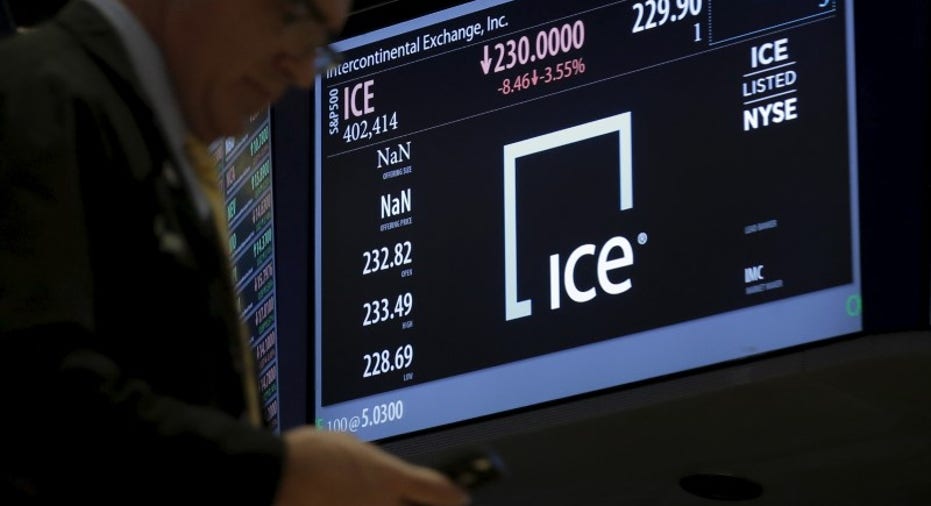ICE told to speed up investigations on U.S. futures exchange

NEW YORK – Intercontinental Exchange Inc generally takes too long to complete investigations into questionable trading practices on its U.S. futures exchange as required by the rules, the regulator said.
Overall, ICE Futures U.S. has an adequate trade practice surveillance program, the U.S. Commodity Futures Trading Commission said in a report dated Dec. 2. The regulator also recommended ICE do a better job documenting its reviews.
Regulations require that exchanges conduct investigations within a year or less, unless there are mitigating factors.
The 61 trade practice-related cases ICE closed during a one-year review by the CFTC's Division of Market Oversight, from March 1, 2014 to Feb. 28, 2015, remained open for an average of 461 days, the report said.
Of those cases, 28 were open for more than a year, including 12 that remained open for at least two years. Of the 28, 10 did not have sufficient mitigating circumstances to justify the length of time it took to investigate them, the report said.
Representatives of ICE could not immediately be reached for comment on the report.
Exchanges monitor their dealings for manipulative or disruptive trading practices, such as spoofing, to protect investors and inspire confidence in the markets.
Spoofing is when one or more traders move the price of a security by placing bogus orders that are modified or canceled before they can become actual trades. The trader can then take the other side of the trades at better prices.
During the review period, ICE initiated four potential spoofing cases and closed two potential spoofing cases, the regulator said.
The CFTC said there was a lack of documentation related to trade practice reviews that ICE said it had done and that it was not able to confirm that all trade practice reviews were conducted during the period.
ICE was also unable to replicate the parameters used to generate alerts for trade practice review exception reports.
The CFTC recommended that ICE improve its documentation of reviews. It also asked the exchange to retain the parameters used to generate alerts that initiate reviews, and to expand the scope of its investigations to look for more patterns of abuse, such as by reviewing more trading days.
(Reporting by John McCrank; editing by Grant McCool)



















